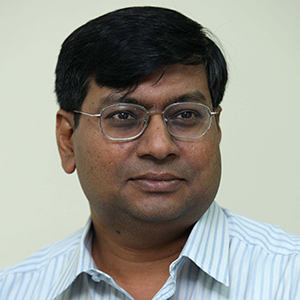The creatively designed 11th Malaysia Plan (11MP) document, launched on May 21, masks deep fissures in the national arena that beg to be rectified before the label of “developed country” would appear justified to describe our status as an economy.
These issues are already all too familiar in the public domain and need only a quick mention as a preamble to the question of what remedies we must use to heal these rifts.
Foremost among them are the issues of race relations and religious differences which are the progenitors of a host of negative developments that cloud the prospects of a viable future for the country.
As many a commentator has lamented, the twin issues that divide Malaysians colour virtually all aspects of national life, from development policy to resource allocation to how we greet one another to even whom we invite into our homes.
In a word, there is a big question mark over our common identity that must be resolved before we can achieve buy-in from all communities into the national development project that is portrayed before us.
It is self-evident that a sense of common purpose is an indispensable prerequisite for a national undertaking such as the vision of becoming a developed nation because without it, the various interest groups that make up the sum total of our strengths will not cooperate towards that common goal.
It is also abundantly clear that the current template of our national identity, with a Malay-Muslim core that must be defended against corroding influences, fails to create the unity of aim that is required to make the project work.
After 57 years of operating in this mould, the damage to our social cohesiveness has indisputably reached a point of grave concern. It follows therefore that in order to achieve a better outcome, a different approach must be taken.
Business as usual would almost guarantee that we are programming ourselves for failure.
Here, we need to take stock of the prevailing narrow interpretation of Article 153 of the Federal Constitution, which enjoins on the Yang di-Pertuan Agong the responsibility of safeguarding the special rights of the Malays and natives of Sabah and Sarawak and the legitimate interests of the other communities.
It could be argued that the dominant dialogue about the constitutional provision for the special rights of the Malays and natives unnecessarily encourages contestation with the other communities when the article concerned intends to safeguard the interests of all communities.
In other words, the principle underlying Article 153 is that all citizens have a natural stake in the nation, including its primarily Malay populace with all its socio-cultural characteristics.
To move forward therefore, it is necessary to change the colour of the national conversation by convincing the Malay nationalists in particular, but all countervailing interest groups as well, that it is time to get over their adversarial stance in order that a meaningful feeling of national consciousness can sprout in all Malaysian hearts.
For such a sentiment to take firm root, it is imperative to uphold the idea that the bond of common humanity that unites all citizens is the foundation upon which the constitutional provision for special rights rests. Only when this concept is wholeheartedly accepted can we hope to move beyond the raucous chauvinism that has come to define Malaysia’s political culture.
As such a mental shift will certainly draw power away from the platform of race and religion, it is unlikely that the interest groups and political parties that sustain this narrow agenda will lead the way in leaving behind our divisive past.
This is a job for a new breed of pioneers motivated by a deep desire to see the country make real progress towards democracy, social justice, freedom and all the attributes of a truly developed society, to chalk a pathway to a better future for all.
While this may seem to be a monumental challenge at this stage in our nation’s history, it is also evident that a failure to rise to the occasion would condemn us to reap the harvest of the distrust, animosity and negativity that our current culture of divisive politics has sowed in our midst.
Furthermore, there is much, much more to be done apart from healing the wounds of racialism before our country can enjoy the benefits of becoming a developed economy.
These include such major tasks as restoring the independence of the pillars of democratic government, inculcating integrity and accountability in public institutions, reversing the growth of corruption, reinventing the education system and ensuring distributive justice and balanced development, just to name some of the most prominent issues today.
Only when these elements of good governance are thriving can we hope that the high aspirations of the 11MP can stand a chance of becoming a reality.
But before any of this would make sense, let us take the simple step of opening our hearts to accept our common humanity as the basis for creating the Malaysian Dream.
That done, a plan for healing the nation would be just what the doctor ordered. – May 29, 2015.
* R.B. Bhattacharjee is associate editor at The Edge.
* This is the personal opinion of the writer or publication and does not necessarily represent the views of The Malaysian Insider.


Comments
Please refrain from nicknames or comments of a racist, sexist, personal, vulgar or derogatory nature, or you may risk being blocked from commenting in our website. We encourage commenters to use their real names as their username. As comments are moderated, they may not appear immediately or even on the same day you posted them. We also reserve the right to delete off-topic comments